octob E r 2023
2024 IEEE IntErnatIonal SympoSIum on phaSEd array SyStEmS and tEchnology
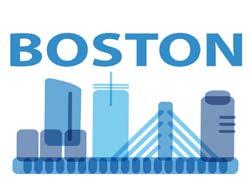
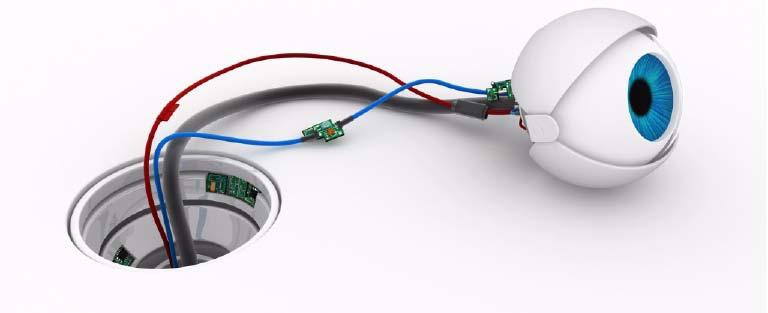
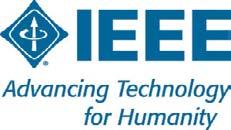
p.8
a dvanc E d d I g I tal d ESI gn: I mpl E m E nt I ng dEE p mach I n E l E arn I ng on fpga ( h o S t E d by m I tr E)
p.20
Prof. dev. training: El E ctron I c fa I lur E m E chan IS m S ( o rgan I z E d by an S yS )
p.18
Prof. dev. training:
I ntroduct I on to n E ural n E twork S and d EE p l E arn I ng (part I )
p.22
Prof. dev. training: accElEratEd lIfE tEStIng for ElEctronIcS rElIabIlIty ( o rgan I z E d by an S yS )
p.19
Prof. dev. training:
d I g I tal SI gnal proc ESSI ng
(d S p) for S oftwar E rad I o
p.24
I SS u E #10
The Reflector, October 2023 2
Editorial - “Excellence in the Boston Section is Alive and Well!” by Gilmore Cooke, Milestone Chair, IEEE Boston Section .......................................................................... Page 3 Call for Course Speakers/Organizers ...................................................................................................... Page 4 Call for Volunteers (EMBS and CE Chapters) .......................................................................................... Page 5 IEEE Boston Section Online, self-paced, on-demand courses ................................................................ Page 7 2024 IEEE International Symposium on Phased Array Systems and Technology ................................... Page 8 IEEE Video Series (Five videos on issues and technologies that impact planet Earth), and Call for Articles of Interest ................................................................................................................. Page 9 Consultants’ Network ............................................................................................................................. Page 10 Volunteers Wanted for the IEEE Boston Section! ................................................................................... Page 11 Aerospace & Electronic Systems, and Robotics and Automation Societies .......................................... Page 12 Reliability Society .................................................................................................................................. Page 14 Boston Microsystems Chapter (Kickoff Event Recap)............................................................................ Page 15 Consultants’ Network Mid-Year Membership Drive ................................................................................ Page 17 Electronic Failure Mechanisms .............................................................................................................. Page 18 Accelerated Life Testing for Electronic Reliability ................................................................................... Page 19 Advanced Digital Design: Implementing Deep Machine Learning on FPGA (Hosted by MITRE).......... Page 20 Introduction to Neural Networks and Deep Learning (Part I) ................................................................. Page 22 Digital Signal Processing (DSP) for Software Radio (Note New dates!) .................................................... Page 24
TABLE OF CONTENTS
Excellence in the Boston Section is Alive and Well!
by Gilmore Cooke, Boston Milestone Committee
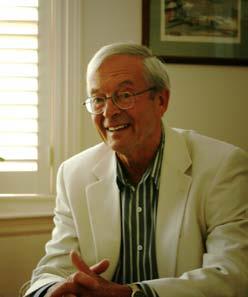
“We are what we repeatedly do. Excellence is not an act, but a habit” … attributed to Aristotle.
Image from the Boston Public Library Historic Collection
in South Boston. Let me now direct the reader to the steeple of Old South Meeting House where its churchbell was housed. This bell was operated electrically for fire alarm purposes by a solenoid actuated mechanism wired to power supplies and controls located in the control room. In addition to alerting fire fighters, this bell, including its wires and power supply, were exercised, and struck each day at noon by a time signal from the Cambridge Observatory. Ultimately this landmark’s telegraphic fire alarm system was recognized as an electrical milestone project and a plaque has been mounted along the Freedom Trail close to the Old City Hall. It reads:
On 28 April 1852 the first municipal electric fire alarm system using call boxes with automatic signaling to indicate the location of a fire was placed into operation in Boston. Invented by William Channing and Moses Farmer, this system was highly successful in reducing property loss and deaths due to fire and was subsequently adopted throughout the United States and in Canada.
Boston’s claim to being the “Great Electrical Metropolis of the World” was on display along Washington Street. Here you can see one of the city’s triple horse-drawn firetruck with fire-fighters that had been dispatched telegraphically by a control-room operator stationed on the top floor of Old City Hall. On the right side of the street heading towards the Old South Meeting House is an open-type electric streetcar belonging to Boston’s West End Street Railway Company. Traction power was generated at 600-volt dc from their central power plant
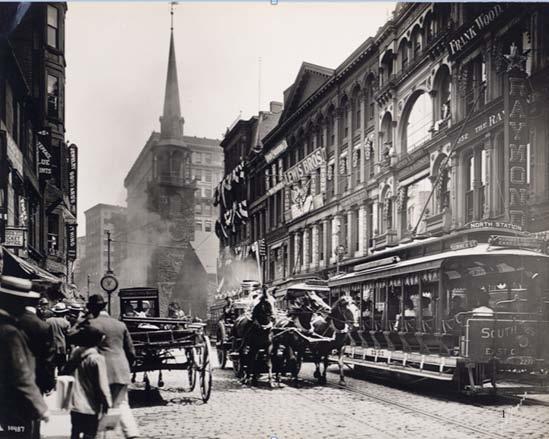
One could make the case that excellence in our discoveries, sciences and engineering work continues because it’s a tradition. To date, the section has been awarded twelve Milestones which is more than any other:
1. MIT Radiation Laboratory, 1940 to 1945
2. Electric Fire Alarm System, 1852
3. Power System of Boston’s Rapid Transit, 1889
4. Intelligible Voice Transmission Over Electric Wires, 1876
The Reflector, October 2023 3
5. First Wireless Radio Broadcast By Reginald A Fessenden, 1906
6. Apollo Guidance Computer, 1962 to1972
7. LORAN, 1940 to 1946
8. Whirlwind Computer, 1944 to 1959
9. SAGE - Semi Automatic Ground Environment, 1951 to 1958
10. First Real-Time Speech Communications on Packet Network, 1974-1982
11.Claude E. Shannon’s Development of Information Theory 1939-1967
12. Harvard Mark 1 Computer, 1944-1959
Recently, three additional proposals have been submitted to the IEEE History Center by MIT Lincoln Labora-
tory. These have been thoroughly reviewed and are in the final phase of approval by the IEEE History Center. They are as follows: “Invention of the Semiconductor Laser”; “Mode S- Next Generation Air Traffic Control Radar System”; and the “193-nm Projection Photolithography”. Stay tuned because the award ceremonies are scheduled to take place Saturday May 4, 2024.
In closing, be aware that another system is being reviewed - the Long-Range Wideband Three-Dimensional Satellite Imaging with the ALCOR Radar. This system has the capabilities of giving better understanding of re-entry vehicles and objects including satellites and space debris orbiting the Earth.
Call for Course Speakers/Organizers
IEEE’s core purpose is to foster technological innovation and excellence for the benefit of humanity. The IEEE Boston Section, its dedicated volunteers, and over 8,500 members are committed to fulfilling this core purpose to the local technology community through chapter meetings, conferences, continuing education short courses, and professional and educational activities.
Twice each year a committee of local IEEE volunteers meet to consider course topics for its continuing education program. This committee is comprised of practicing engineers in various technical disciplines. In an effort to expand these course topics for our members and the local technical community at large, the committee is publicizing this CALL FOR COURSE SPEAKERS AND ORGANIZERS.
The Boston Section is one of the largest and most technically divers sections of the IEEE. We have over 20 active chapters and affinity groups. If you have an expertise that you feel might be of
interest to our members, please submit that to our online course proposal form on the section’s website (www.ieeeboston.org) and click on the course proposal link (direct course proposal form link is http://ieeeboston.org/course-proposals/ Alternatively, you may contact the IEEE Boston Section office at ieeebostonsection@gmail.com or 781 245 5405.
• Honoraria can be considered for course lecturers
• Applications oriented, practical focused courses are best (all courses should help attendees expand their knowledge based and help them do their job better after completing a course
• Courses should be no more than 2 full days, or 18 hours for a multi-evening course
• Your course will be publicized to over 10,000 local engineers
• You will be providing a valuable service to your profession
• Previous lecturers include: Dr. Eli Brookner, Dr. Steven Best, Colin Brench, to name a few.
The Reflector, October 2023 4
Consumer Technology Society Call for Volunteers!
We are currently looking for volunteers who would be interested in pushing forward the mission of the Consumer Technology (CT-S), Boston Chapter. The chapter is looking for volunteers to help organize chapter meetings and help meet the needs of the local CT-S member needs.
The Boston Section is organizing chapters into groups of similar technical interest areas to pool their resources for easier and better chapter collaboration in planning the chapter events.
If you have interest in volunteering for a chapter leadership position or are interested in learning more about what these volunteer positions may entail, please send an email to Karen Safina in the IEEE Boston Section office at, ieeebostonsection@gmail.com
Aakash Deliwala, Chair, IEEE Boston Consumer Technology Chapter
Engineering in Medicine & Biology Society Call for Volunteers!
We are currently looking for volunteers who would be interested in pushing forward the mission of the Engineering in Medicine & Biology Society (EMBS), Boston Chapter. The EMBS - Boston Chapter was recently approved in July 2021, and we’re looking to make a significant impact in the area of Biomedicine, Bioengineering, and Biotechnology in the region. The chapter is looking for volunteers to help organize chapter meetings and help meet the needs of the local EMBS members.
The Boston Section is organizing chapters into groups of similar technical interest areas to pool their resources for easier and better chapter collaboration in planning the chapter events.
If you have interest in volunteering for a chapter leadership position or are interested in learning more about what these volunteer positions may entail, please send an email to Karen Safina in the IEEE Boston Section office at, ieeebostonsection@gmail.com.
Aseem Singh, Marie Tupaj, Co-Chairs, Boston EMBS Chapter
The Reflector, October 2023 5

The Reflector, October 2023 6 What
IEEE 420,000+ members in 160 countries. Embrace the largest, global, technical community. People Driving Technological Innovation. ieee.org/membership #IEEEmember knowledge community professional development career advancement
+ If =
IEEE Boston Section Online Courses:
(Students have 180 day access to all online, self-paced courses)
Electronic Reliability Tutorial Series
Full course description and registration at , http://ieeeboston.org/electronic-reliability/
High Performance Project Management
Full course description and registration at , http://ieeeboston.org/high-performance-project-management-online-course/
Introduction to Embedded Linux Part I
Full course description and registration at , http://ieeeboston.org/introduction-to-embedded-linux-part-i-el201-online-course/
Embedded Linux Optimization - Tools and Techniques
Full course description and registration at , http://ieeeboston.org/embedded-linux-optimization-tools-techniques-line-course/
Embedded Linux Board Support Packages and Device Drivers
Full course description and registration at , http://ieeeboston.org/embedded-linux-bsps-device-drivers-line-course/
Software Development for Medical Device Manufacturers
Full course description and registration at , http://ieeeboston.org/software-development-medical-device-manufacturers-line-course/
Fundamental Mathematics Concepts Relating to Electromagnetics
Full course description and registration at , http://ieeeboston.org/fundamental-mathematics-concepts-relating-electromagnetics-line-course/
Reliability Engineering for the Business World
Full course description and registration at , http://ieeeboston.org/reliability-engineering-business-world-line-course/
Design Thinking for Today’s Technical Work
http://ieeeboston.org/design-thinking-technical-work-line-course/
Fundamentals of Real-Time Operating Systems
http://ieeeboston.org/fundamentals-of-real-time-operating-systems-rt201-on-line-course/
The Reflector, October 2023 7
Sponsors and Exhibitors
CALL FOR PAPERS
IEEE International Symposium on Phased Array Systems and Technology



15 - 18 October 2024
Hynes Convention Center
Boston, Massachusetts, USA
www ieee-array.org

About the Symposium
Phased array systems continue to be a rapidly evolving technology with steady advances motivated by the challenges presented to modern military and commercial applications. This symposium will present the most recent advances in phased array technology and offer a unique opportunity for members of the international community to interact with colleagues in the field of phased array systems and technology.
Committee
Symposium Chairs
Sean Duffy (C), MIT LL
Wajih Elsallal (VC), MITRE
Technical Program Chairs
David Mooradd (C), MIT LL
Glenn Hopkins (VC), GTRI
Special Sessions Chairs
Contact: sponsorships@ ieee-array.org
The committee is thrilled to announce two major changes to the symposium to better reflect the interest and pace of technol ogy development: (1) moving to the larger Hynes Convention Center in the Back-Bay neighborhood of Boston; and (2) increasing the symposium frequency to a two-year cadence.
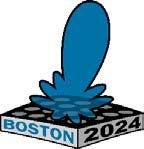
Be a Symposium Sponsor or Exhibitor
For sponsorship and exhibit opportunities please reach out to Mark McClure and Marc Angelucci at: sponsorships@ieee-array.org.
Suggested Topics
• 5G Arrays
• Array Design
Technical Co-Sponsors
• Array Measurements
• Array Signal Processing
• Automotive Arrays
• Beamforming & Calibration
• Digital Array Architectures
• Dual Polarized Arrays
• Low Cost Commercial Arrays
• MIMO Arrays
• Medical Applications
• Metamaterial Phased Arrays
• mmWave and Terahertz
• T/R Modules
• Low Frequency Arrays
• SATCOM Arrays
• Weather Arrays
• Wideband Arrays
Paper Template and Submission Procedures
Template and submission procedures are available at: https://ieee-array.org/call-for-papers
Important Dates
• Full paper submission (2-8 pages including figures): 13 May 2024
Media Sponsor

• Author notification: 22 July 2024
• Author registration deadline: 01 Sept 2024
We are looking forward to seeing you at this next gathering.
Matt Faccine, NGC
Kenneth E. Kolodziej, MIT LL
Plenary Session Chair
Will Moulder, MIT LL
William Weedon, Applied Radar
Student Program
Matilda Livadaru, Raytheon Tech
Justin Kasemodel, Raytheon Tech
Tutorials
Cara Kataria, MIT LL
Frank Vliet, TNO
Sponsorship and Exhibits
Marc Angelucci, LMC
Mark McClure, STR
Digital Platforms Chairs
Pierre Dufilie, Raytheon Tech
Jacob Houck, GTRI
Mark Fosberry, MITRE
Shireen Warnock, MIT LL
Publications/Publicity
Philip Zurek, MIT LL
Jack Logan, NRL
Elizabeth Kowalski, MIT LL
Poster Sessions Chair
Honglei Chen, MathWorks
Advisors
Daniel Culkin, NGC
Alan J. Fenn, MIT LL
Jeffery S. Herd, MIT LL
Bradley Perry, MIT LL
Arrangements/ Administration
Robert Alongi, IEEE Boston
Kathleen Ballos, Ballos Assoc.
The Reflector, October 2023 8 CFP 20230620
IEEE Video Series
A collaborative discussion panel featuring esteemed members from the Institute of Electrical and Electronics Engineers has convened in 2021 to produce educational video presentations that embrace IEEE’s mission of advancing technology for humanity.
Among the programs they’ve produced include “Electric Vehicles: Fun Saving Our Planet”, “Greener Power For More Electric Vehicles”, “Overcoming Nuclear Fears To Achieve Net Zero CO2 By 2050” and “Achieving a Net Zero Carbon Future”, “Green Energy’s Economic Progress”, and “Net-Zero CO2 with Nuclear, Hydrogen and Geothermal”. Projects currently in production include the expansive topic of futurology, with a focus on increasing the efficiency and transformation of aging electrical power generating stations and infrastructure to accommodate nuclear power; reviewing the viability of alternative energy (such as geothermal, wind and solar); and focusing on ‘cleaner’ fossil fuels that are more environmentally-friendly to slow the rate of climate change.
These shows are produced and directed by Lennart E. Long, IEEE Senior Life Member from the Executive Committee and Past Chair of the Boston Section; Dr. Paul H Carr, BS, MS, MIT; PhD Brandeis U, IEEE Life Fellow; Dr. Ted Kochanski, SB (MIT), Ph.D (U.Texas, Austin), IEEE Global Education for Microelectronic Systems and former Boston Section Chair; and Dr. Ken Laker, B.E. (Manhattan College), M.S. and Ph.D. (New York University), IEEE Life Fellow and past President of IEEE.
The panel is moderated by five-time Boston/New England Emmy Award-winner and television personality and star of “The Folklorist,” John Horrigan. These video programs with presentations and discussions can be accessed at the IEEE Boston Section video portal at https:// vimeo.com/user18608275.
We are looking for any IEEE members that would like to appear on the program in the role of presenter or discussion expert. Simply reach out to Robert Alongi at the Boston Section at, ieeebostonsection@gmail.com.
Call for Articles
Now that the Reflector is all electronic, we are expanding the content of the publication. One of the new features we will be adding are technical, professional development, and general interest articles to our members and the local technology community. These will supplement the existing material already in our publication.
Technical submissions should be of reasonable technical depth and include graphics and, if needed, any supporting files. The length is flexible; however, a four to five page limit should be used as a guide. An appropriate guide may be a technical paper in a conference proceeding rather than one in an IEEE journal or transaction.
Professional development or general interest articles should have broad applicability to the engineering community and should not explicitly promote services for which a fee or pay-
ment is required. A maximum length of two to three pages would be best.
To ensure quality, technical submissions will be reviewed by the appropriate technical area(s). Professional/interest articles will be reviewed by the Publications Committee for suitability.The author will be notified of the reviewers’ decision.
The Reflector is published the first of each month. The target submission deadline for the articles should be five weeks before the issue date (e.g., June 1st issue date; article submission is April 27). This will allow sufficient time for a thorough review and notification to the author.
We are excited about this new feature and hope you are eager to participate!
Submissions should be sent to; ieeebostonsection@gmail.com
The Reflector, October 2023 9
Consultants Network – 6:00PM, Monday, October 2
CNET MEETING: BOARD OF DIRECTORS (MEMBERS ONLY)
Location: Great Wall Restaurant 309B Great Road, Bedford, MA 01730. Phone: 781-275-7007
Fax: 781-275-7700. http://www.greatwallbedford.com/
Registration: https://boston-consult.org/event-5414458
Dinner starts at 6:00 PM
Meeting starts shortly after 7:00 PM - On-site and Zoom Members in good standing are encouraged to attend. Free meal included in your attendance.
If you are unable to attend, then we will also be on Zoom, but the connection will not be perfect.
Your registration confirmation email contains the zoom link - Please read the email confirmation completely.
Event Description:
Board of Directors meeting topics:
- Board of Directors Plan for 2023 remaining
- Revenue for this year
- Marketing Plan and Marketing Assistant
- Membership Drive Currently in Progress 50% off, Implementation Plan
- Events Director and upcoming events management
- Speakers for remainder of 2023
- Student membership and rate
Consultants Network – 6:00PM, Friday, October 20
CNET Family and Friends End of Summer BBQ Bash / New Hampshire Drive / Larry Rachman Retirement Party
Location: Residence Inn Marriott Framingham, 400 Staples Drive, Framingham, Massachusetts 01702
Registration: https://boston-consult.org/event-5334486
Members only $15 – $15.00
Nonmember – $30.00
Please come and honor Larry Rachman’s service, over many years, to Boston CNET. We are hoping for all CNET members to attend.
Onsite Only Residence Inn by Marriott, Framingham MA, Hotel Suite.
https://www.marriott.com/en-us/hotels/bosfm-residence-inn-boston-framingham/overview/ Registrants will be emailed with the suite or meeting room number.
Cost: $15 per CNET member, $15 per family member of CNET member, $30 friends and non-members. Please note, the member ticket cost is less that the actually cost to run this event. CNET is absorbing most of
the cost. Your discount is a member benefit! We want ALL our members to participate in this event. We hope to welcome new members that are part of our membership summer drive.
50% off membership to any member joining from July to September, 2023.
Event Description:
- 1st Annual Boston CNET End of Summer Bash
- Larry Rachman (former CNET Board Member and Webmaster since 2005) Retirement Party. Please help us honor Larry’s service. Larry’s wife will also be present.
- Board of Directors Meeting Address to Membership
- Get to know other CNET members
- Meet the CNET Board of Directors live in person
- Menu: (subject to change and request) BBQ Pulled Pork, BBQ chicken, sauce, buns, salad, dressing, sides, beverages. Complimentary beer and wine will be served (IEEE requires a signed waiver).
- Music
The Reflector, October 2023 10
IEEE Boston Section Volunteers Wanted!
Are you passionate about technology and eager to contribute to the advancement of your field? The IEEE Boston Section is excited to announce a call for volunteers to join our dynamic team of professionals and enthusiasts. By becoming a volunteer, you’ll have the opportunity to collaborate with like-minded individuals, develop new skills, and make a meaningful impact on the local technology community.
About IEEE Boston Section:
The IEEE Boston Section is a thriving community of engineers, researchers, students, and industry professionals dedicated to promoting technological innovation and knowledge sharing. Our section hosts a variety of events, workshops, seminars, and conferences throughout the year, providing members with opportunities to learn, network, and stay updated on the latest developments in their fields.
Volunteer Opportunities:
We are currently seeking volunteers to help on the following committees:
The Fellow and Awards Committee - activities include recommending qualified members of the Section for advancement to Fellow grade and for receipt of the various IEEE (IEEE/Region/ MGA/Section) awards. Identifying and building a database of the various IEEE awards available for nomination and searching out qualified candidates, for preparing the necessary written recommendations, and for assembling all required supporting documentation and submit its recommendations directly to the appropriate IEEE body.
Time Commitment: Meets 4 times a year for 1 – 2 hours per meeting (virtual or in person)
Local Conferences Committee - activities include identifying timely topical areas for conference development. Identify champions of these conferences to run the identified conference organizing committees. The section local conference committee is not charged with organizing and executing individual conferences.
Time Commitment: Meets 4 times per year 1 – 2 hours per meeting (virtual or in person)
Professional Development & Education Committee - activities include identifying topics, speakers, and/or organizers for appropriate technical lecture series or seminars. The subject matter should be timely, of interest to a large segment of the membership, and well organized with regard to speakers and written subject matter.
Time Commitment: meets 4 times per year, 1 – 2 hours per meeting (virtual or in person)
The Membership Development Committee - activities include actively promoting membership in the IEEE and shall encourage members to advance to the highest grade of membership for which they are qualified. To these ends this committee shall include wide representation within the Section territory, shall maintain lists of
prospects and members qualified for advancement, and shall provide information and assistance to preparing applications. Time Commitment: meets 4 times per year, 1 – 2 hours per meeting (virtual or in person)
Student Activities Committee - activities include attracting a broad and diverse group of undergraduate and graduate students to IEEE and to engage them in activities that promote their own professional development as well as the ongoing growth of IEEE. The Student Activities Committee shall include among its members the IEEE Counselors at the universities, colleges, and technical institutes that lie within the Section territory. It shall be responsible for liaison with the Student Branches at these institutions and advise the Executive Committee on all other matters affecting the Student Members of the Section.
Time Commitment: meets 4 times per year, 1 – 2 hours per meeting (virtual or in person)
Young Professionals Affinity Group - activities include organizing programs, and initiatives aimed to address the needs of early-career professionals pursuing technology-related careers in engineering, business, management, marketing, and law. This committee is committed to helping young professionals evaluate their career goals, polish their professional image, and create the building blocks of a lifelong and diverse professional network. Time Commitment: meets 4 times per year, 1 – 2 hours per meeting (virtual or in person)
Benefits of Volunteering:
Volunteering with IEEE Boston Section offers numerous benefits, including:
• Networking opportunities with professionals in your field.
• Skill development and enhancement through hands-on experience.
• Contribution to the local technology community and its growth. Access to cutting-edge information and discussions.
How to Get Involved:
If you’re enthusiastic about technology and want to make a difference, we invite you to join us as a volunteer. To express your interest and learn more about specific roles, please visit our website and fill out the volunteer application form. Our team will get in touch with you to discuss opportunities that align with your interests and skills.
Thank you for considering this opportunity to contribute to the IEEE Boston Section. Your dedication and passion are what drive the success of our community and its impact on the world of technology.
The Reflector, October 2023 11
Volunteer Here!
https://ieeeboston.org/volunteer/
Aerospace and Electronic Systems, and IEEE Robotics and Automation Societies – 6:00PM, Thursday, October 5
Spaceducks: Low-Cost, Low-Bandwidth Aerospace Sensor and Communication Networks
Speaker: Mr. Bryan Knouse, Co-Founder and CEO of OWL Integrations

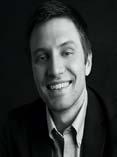
OWL’s mission is to improve the world’s resilience through connectivity. OWL does this through a unique blend of hardware, firmware, and software. OWL focuses on applications in disaster-resilient communications, carbon emissions sensor networks, and open-source powered aerospace networking platforms. OWL will discuss its low-bandwidth, low-cost, 915mhz LoRa terrestrial and aerospace communications and sensor network technology. OWL will discuss its technology roadmap toward SDR-based solutions, and how its open-source powered electronics will dramatically reduce the cost of distributed networking. To bring this technology to fruition, OWL works alongside academic research partners in Cal Poly University, University of Texas at Dallas, Arizona State University, and others. OWL is seeking to evangelize its approach and collaborative research and
development partners as it enters a new stage of business and technological capability.
Bryan is a Co-Founder and CEO of OWL Integrations. Bryan has led OWL to international grand prize awards in the IBM Call for Code and US Army’s xTechSearch competitions, and currently leads OWL’s efforts across several US Air Force research and development contracts. Bryan has a B.S. in Mechanical Engineering from the University of Rochester. Bryan is passionate about technology, innovation, private-academic partnerships, and the ongoing shift to American semiconductor manufacturing.
Location: MIT Lincoln Labs, 3 Forbes Road, Lexington, MA
Registration: https://events.vtools.ieee.org/m/374936
Aerospace and Electronic Systems – 5:30PM, Wednesday, October 25
FPGA based Real-Time Processing for Vision and SDR Applications
Location: MIT – 50 Vassar Street, Cambridge, MA - Building 34 – Room 34-401A (Grier Room A)
Speaker: Oliver Bründler, FPGA/SoC System Design Expert and Project Leader at Enclustra, Zürich, Switzerland
FPGAs and SoCs became a key technology for processing high-bandwidth signals like video content and RF signals. Applications range from every-day life – like cellphone base stations and automotive driving assistance – to very specialized – as for example surgery devices and EMC measurement equipment. This presentation aims to point-out the most important considerations for successfully implementing vision and software defined radio systems
on FPGA and SoC devices. Focus topics are the optimization of algorithms for FPGA implementation and efficient development processes to get the work done in time and high quality. Besides that, impacts of recent technologies like AI and highly integrated RF devices (RFSoC) are discussed.
Oliver Bründler works for Enclustra in the business unit design services, which supports global customers in all areas of FPGA-based system development. He is
The Reflector, October 2023 12
responsible for projects which have a broad range of applications such as medical, test & measurement, and aerospace. As a system design expert, he is in charge of system design and specification, as well as managing the projects and ensuring successful completion. With over 15 years of experience in the field of programmable logic, he brings a wealth of practical experience and expertise to take on the most challenging customer projects for Enclustra.
Oliver Bründler earned a degree in digital microelectronics and started working for Enclustra right after completing his BSc in electrical engineering at FHNW in Switzerland. He then immersed himself in real-world projects to learn through hands-on experiences. This approach allowed him to gain in depth knowledge while
actively apply theoretical concepts to solve complex problems for Enclustra and its customers. From 2017 to 2020 Oliver Bründler worked on electronics for particle accelerators at Paul Scherrer Institute and played a pivotal role in the creation of open-source FPGA libraries, before returning to Enclustra. Throughout his career he worked on a wide variety of projects and a diverse spectrum of technological advancements, including development of cutting-edge devices such as spectrum analyzers, servo controllers, RF measurement devices, RF control systems, SDR modems and low-latency video processing chains.
Registration: https://events.vtools.ieee.org/m/369762
Call for Course Speakers/Organizers
IEEE’s core purpose is to foster technological innovation and excellence for the benefit of humanity. The IEEE Boston Section, its dedicated volunteers, and over 8,500 members are committed to fulfilling this core purpose to the local technology community through chapter meetings, conferences, continuing education short courses, and professional and educational activities.
Twice each year a committee of local IEEE volunteers meet to consider course topics for its continuing education program. This committee is comprised of practicing engineers in various technical disciplines. In an effort to expand these course topics for our members and the local technical community at large, the committee is publicizing this CALL FOR COURSE SPEAKERS AND ORGANIZERS.
The Boston Section is one of the largest and most technically divers sections of the IEEE. We have over 20 active chapters and affinity groups. If you have an expertise that you feel might be of
interest to our members, please submit that to our online course proposal form on the section’s website (www.ieeeboston.org) and click on the course proposal link (direct course proposal form link is http://ieeeboston.org/course-proposals/ Alternatively, you may contact the IEEE Boston Section office at ieeebostonsection@gmail.com or 781 245 5405.
• Honoraria can be considered for course lecturers
• Applications oriented, practical focused courses are best (all courses should help attendees expand their knowledge based and help them do their job better after completing a course
• Courses should be no more than 2 full days, or 18 hours for a multi-evening course
• Your course will be publicized to over 10,000 local engineers
• You will be providing a valuable service to your profession
• Previous lecturers include: Dr. Eli Brookner, Dr. Steven Best, Colin Brench, to name a few.
The Reflector, October 2023 13
Boston/Providence/New Hampshire Reliability Chapter – 5:30PM, Wednesday, October 11
The State of the Art in Material Characterization for Electronics
Speaker: Alfredo Díaz González of Oxford Instruments America, Inc.

Please visit: https://r1.ieee.org/boston-rl/
Material properties affect the performance of electronic devices. Material characterization techniques can be used to analyze a wide range of properties. Mainly, we will focus on Scanning Electron Microscope (SEM) based techniques that are commonly used to characterize materials. For example, Energy Dispersive Spectrometry (EDS) is used to identify chemistry distribution within a surface while Electron Backscatter Diffraction (EBSD) provides information about the grain size, crystal structure and orientation, among others.
This presentation will offer an overview of some characterization techniques, discussing how the techniques work and what information can be obtained from them. Some examples of applications will be shared to illustrate how they can solve research problems.
Location: This Meeting is to be delivered in-person at MIT Lincoln Lab Main Cafeteria, 244 Wood St, Lexington, MA 02421, and virtually.
Registration: https://events.vtools.ieee.org/m/371485
At registration, you must provide a valid e-mail address to receive the Webinar Session link approximately 15
hours before the event. The link will only be sent to the e-mail address entered with your registration. Please double-check for spelling errors. If you haven’t received the e-mail as scheduled, please check your spam folder and alternate e-mail accounts before contacting the host.
Please indicate in the registration survey if you will be attending in person so that we may plan for food and refreshments.
Address: Lincoln Laboratory 244 Wood St Lexington, MA 02421, Massachusetts United States Building: Main Cafeteria
Agenda:
5:30 PM Networking
6:00 PM Technical Presentation
6:45 PM Questions and Answers
7:00 PM Adjournment
The meeting is open to all. You do not need to belong to the IEEE to attend this event; however, we welcome your consideration of IEEE membership as a career enhancing technical affiliation.
There is no cost to register or attend, but registration is required.
The Reflector, October 2023 14
Electrifying Success: IEEE Microsystems Boston Chapter Kick-off Sparks Enthusiasm
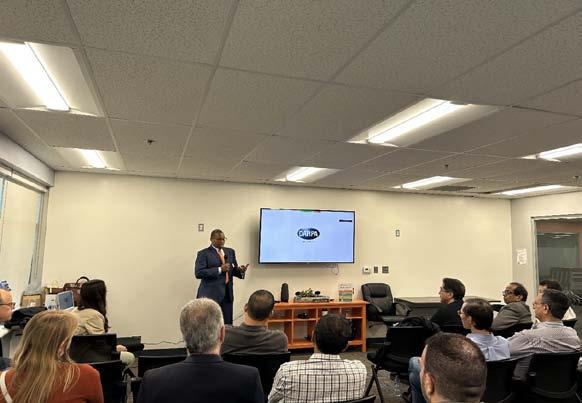
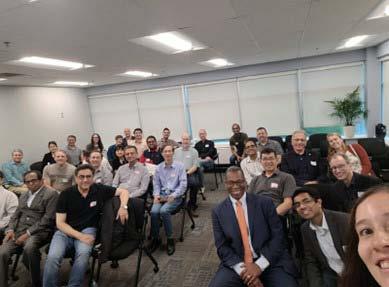
for what promises to be a dynamic and an influential future. Featuring a riveting keynote speaker, a podcast debut, and a fruitful networking session, the event succeeded in gathering local microsystems technology enthusiasts and professionals.
The event was held in Burlington, MA on Sunday, September 10th, and gathered over 40 academics and industry professionals from more than 10 institutions in the Boston Area. It truly reflected the region’s passion for microsystems and all the fields it encapsulates, such as micro electro-mechanical systems (MEMS), solid state devices and circuits, magnetics, and photonics.
Image: Picture of attendees with the keynote speaker during the IEEE Microsystems Boston Chapter’s kickoff event.
The IEEE Microsystems Boston Chapter was recently founded with a clear objective: to build a stronger and a collaborative microsystems community in the New England region. Constituted as a joint chapter of the IEEE Sensors Council and the IEEE Ultrasonics, Ferroelectrics and Frequency Control (UFFC) society, the chapter organized its kick-off event, setting the stage
One of the event’s highlights was the keynote address delivered by Dr. Carl McCants, a Special Assistant to the DARPA Director. Dr. McCants captivated the audience with his insights into the need for manufacturing 3-dimensional heterogeneously integrated microsystems and spoke about DARPA’s initiatives to nurture the nation’s capability in this futuristic technology.
Image: Emeritus Professor Stephen Senturia (MIT, Cambridge) being felicitated by Professor Khalil Najafi (University of Michigan, Ann Arbor) during the chapter’s podcast launch event.
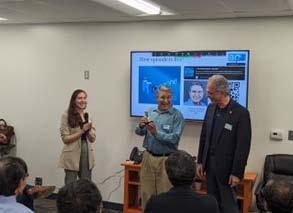
The Reflector, October 2023 15
Image: Dr. Carl McCants delivering an engaging keynote address
The kick-off event also featured the launch of a new podcast channel started by the IEEE Microsystems Boston chapter. The podcast, The Microzone, will feature interviews of local microsystems luminaries. The inaugural guest for the podcast, Professor Emeritus Stephen Senturia, was also present at the event.
Networking played a pivotal role in the event’s success, as participants had a chance to connect with likeminded professionals and scholars, potential mentors, and future collaborators. The event provided a platform for academics and professionals from various industries to gather, share their interests, and exchange ideas for the future they anticipate emerging from this new IEEE chapter.
Moreover, the IEEE chapter also unveiled its ambitious plans for the upcoming year. The leadership team introduced various initiatives, including short courses, mentorship opportunities, and leadership panels, all aimed at nurturing the skills and knowledge of its members while making a positive impact on the local community.
The kick-off event was not only a celebration of technological innovations in the microsystems area, but also a testament to the dedication and hard work of the IEEE Microsystems Boston chapter’s organizers. The event’s success was made possible through the collaborative efforts of the organizing committee: Adarsh Ravi (Chair), Shireen Warnock (Vice-Chair), Allison Lemus (Treasurer and Director- New Initiatives), Benyamin Davaji (Secretary and Industry Liaison), and Siddhartha Ghosh (Secretary and Academic Liaison), and the generous support from the IEEE Sensors Council, the IEEE UFFC-Society, and the IEEE Boston Section.
As the event concluded, attendees left with a renewed sense of purpose, inspired by the potential for growth and collaboration within the newly formed IEEE chapter in the New England region. It was evident that the kick-off event had not only ignited the spark of enthusiasm but had also set the stage for a year of remarkable achievements and contributions to the field.
Image: Organizing committee members with the keynote speaker. (L-R): Adarsh Ravi, Allison Lemus, Carl McCants, Shireen Warnock, Siddhartha Ghosh, and Benyamin Davaji.
In summary, the IEEE Microsystems Boston chapter’s kick-off event was an electrifying success, uniting individuals from diverse backgrounds under the common goal of advancing impactful technology and innovation. As the chapter moves forward with its exciting agenda, the local tech community eagerly anticipates the positive impact it will have on education, research, and technological progress in the region.
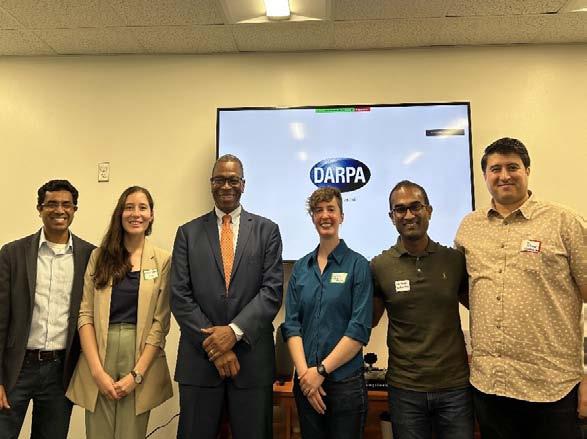
The Reflector, October 2023 16
Consultants Network – 6:30PM, July to September 2023
Boston CNET Mid-Year Membership Drive
MEMBERSHIP DRIVE - 50% OFF MEMBERSHIP FROM JULY TO SEPTEMBER
Location: Your home
Registration: Membership Meeting - https://boston-consult.org/event-5341482
For a limited time get 50% off membership: Membership
IEEE Member $40.00
Non IEEE Member $50.00
No need to register for this event. Your participation in Boston CNET is appreciated, just click the Membership link. Reasons to join CNET? See the membership page link for member benefits. Membership
This is a limited time offer. Your membership is good till the end of 2023.
Were you a prior member of Boston CNET? This is a cost effective way to rejoin CNET for 2023 and enjoy member benefits. Please help fund Boston CNET for 2023. Become a member again - Membership.
We are listening to our members; please send us concerns or comments on how we can best meet your needs via the contacts page. If you have questions, please let us know. What can we do to entice you to join Boston CNET? We return phone calls; all officers respond to membership needs and requests. Officers and Contacts
This is part of a larger membership drive that will kick off in July. We hope to see you at one of our upcoming events. Please see our events page at this link for a list of upcoming events. Events
Thank you, Boston CNET Board of Directors
IEEE
Twitter: https://twitter.com/ieeeboston
Facebook: https://www.facebook.com/IEEEBoston
YouTube: https://www.youtube.com/user/IEEEBostonSection
LinkedIn: https://www.linkedin.com/groups/IEEE-Boston-Section-3763694/about
The Reflector, October 2023 17
Boston Section Social Media Links:
IEEE-Ansys Reliability Tutorial Series:
Electronic Failure Mechanisms
Web-based Course with live Instructor!
Times & Dates: 11AM - 1PM ET, October 4, 2023
Speaker: Dr. Nathan Blattau, Ansys
Course Format: Live Webinar
Whether in defense, healthcare, consumer electronics, or communication industries, having a fundamental knowledge of electronic packaging reliability is now crucial in order to develop safe and durable products. In this webinar, the common overstress and wearout failure mechanisms found in electronics will be presented. The failure mechanisms to be discussed include fracture, fatigue, wear, time independent dielectric breakdown, dendrite growth, and more. The discussion of each mechanism will include a description of the failure, the common life models used to predict the failure, and methods to mitigate the failure. The presentation will conclude with a brief look into the next generation of electronics packages and the expected reliability concerns as packages become more advanced.
This presentation is part of a two-lecture miniseries covering electronics reliability validation testing. This lecture focusses on developing a fundamental background of electronics failures. The subsequent lecture will focus on developing validation tests based on the fundamental failure mechanisms presented here.
TAKEAWAYS:
1) An understanding of the fundamental mechanical and electrical reliability concerns of electronics packages; once an understanding is developed, the mitigation techniques can be more easily conceived.
2) A list of the common failure mechanisms in elec-
tronics packages and the common life stress models used to describe them.
3) A glimpse into the future of electronic packaging and the reliability challenges that are predicted to arise.
Dr. Nathan Blattau, Ph.D.
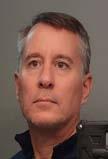
Dr. Nathan Blattau, Distinguished Engineer at Ansys, has been involved in the simulation and reliability of electronic equipment for over twenty years. Prior to joining Ansys, Dr. Blattau was the Vice President and Chief Scientist of DfR Solutions. He holds two patents and has authored over 20 papers and has presented on a wide variety of reliability issues within the electronics industry. His specialties include best practices in design for reliability, robustness of Pb-free, failure analysis, accelerated test plan development, nonlinear finite element analysis, and solder joint reliability. Dr. Blattau holds a Ph.D. in Mechanical Engineering, an M.S. in Mechanical Engineering, and a B.S. in Civil Engineering from the University of Maryland.
CEU/PDH are are availabe upon request. A small fee may apply for the credits
https://ieeeboston.org/event/ieee-ansys-reliability-tutorial-series-electronic-reliability-validation-testing/?instance_id=3473
The Reflector, October 2023 18
Decision (Run/Cancel) Date for this Course is Monday,
2023 Payment IEEE Members $110 Non-members $120
October 1,
Organized and Presented by Ansys Corp.
IEEE-Ansys Reliability Tutorial Series:
Accelerated Life Testing for Electronics Reliability
Web-based Course with live Instructor!
Times & Dates: 11AM - 1PM ET, October 12, 2023
Speaker: Dr. Jon Kordell, Ansys Course Format: Live Webinar
Whether in the defense, healthcare, consumer electronics, or communication industries, performing electronic packaging reliability demonstration tests is a crucial part of the design process. This webinar will cover a wide range of accelerated life tests (ALT), including ALT tests at the device level to determine characteristic life, highly accelerated life tests (HALT) to determine design flaws, highly accelerated stress screens (HASS) to catch manufacturing defects, and board level reliability tests (BLTR) to demonstrate product reliability. The discussion of each test will include a definition of the test, recommendations on how to design and complete the test, and how to process the results. The lecture is focused on electronics reliability and will use electronics examples to aid in the discussion.
This presentation is the second part of a two-lecture miniseries covering electronics reliability validation testing. The previous lecture focused on developing a fundamental background of electronics failures. This lecture will focus on using those fundamentals to develop validation tests based.
TAKEAWAYS:
1) How to use accelerated life testing to predict product life in the field.
2) Understanding the differences between the different ALT test – ALT/HALT/HASS/BLRT
3) How to develop a reliability demonstration test.
Dr. Jon Kordell, Ph.D
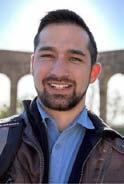
Jonathan Kordell is a Senior Reliability Consulting Engineer at Ansys with 8 years of experience in electronic packaging reliability, accelerated testing and failure analysis. His current role is focused on the reliability of electronic devices in a range of environments via a combination of physical characterization and analytical modeling including finite element analysis. Jonathan received his PhD in mechanical engineering from the University of Maryland at the Center for Advanced Life Cycle Engineering (CALCE).
CEU/PDH are are availabe upon request. A small fee may apply for the credits
Decision (Run/Cancel) Date for this Course is Wednesday, October 4, 2023
Payment
IEEE Members $110
Non-members $120
https://ieeeboston.org/event/ieee-ansys-reliability-tutorial-series/?instance_id=3475
The Reflector, October 2023 19
Organized and Presented by Ansys Corp.
Note New Date!
Advanced Digital Design: Implementing Deep Machine Learning on FPGA
Times & Dates: 6 - PM ET, Mondays, Jan. 22, 29, Feb. 5, 12, 19, 26, 2024
Speaker: Kendall Farnham, Dartmouth College
Location: MITRE Corporation, Bedford, MA
Course Overview:
Field-programmable gate arrays (FPGAs) are versatile integrated circuits that offer a flexible and reconfigurable hardware platform for implementing custom digital circuits, particularly in applications requiring specialized architectures. Unlike application-specific integrated circuits (ASICs), FPGAs can be programmed and reprogrammed after manufacturing using hardware description languages (HDLs), enabling rapid prototyping and iterative design processes. FPGAs can be found in telecommunications, signal processing, aerospace, and other scenarios demanding high-performance computing, parallel processing, low-latency data processing, and real-time operations. The newest trends include integrating FPGAs with systems on chip (SoCs) for implementing low-latency machine learning (ML) and artificial intelligence.
This Advanced Digital Design course is an intensive program designed to build upon foundational concepts in digital logic design and equip students with the skills needed to implement robust high-speed ML algorithms on an FPGA. Through a combination of theoretical lectures, hands-on exercises, and practical projects, students will explore advanced FPGA topics encompassing architectural considerations, signal integrity, timing analysis, and optimization techniques to achieve reliable and efficient high-speed designs. Additionally, this course will encourage students to explore current research papers and real-world industry applications to foster a deeper appreciation for advancements in stateof-the-art FPGA design.
Target audience:
Students and professionals with a base knowledge of FPGA design looking to advance hardware design skills for developing complex customized circuits for efficient implementation of ML.
Benefits of attending:
• Valuable professional development creating skills that lead to job offers
• Reinforce and expand knowledge of VHDL and FPGA-specific design methodology.
• Develop skills for implementing high-speed, robust, reliable circuits on FPGAs.
• Gain understanding of real-world industry applications of FPGAs and SoCs.
Course Objectives:
By the end of this course, students will possess the expertise needed to tackle complex high-speed hardware design challenges using FPGAs. They will be well-prepared to contribute to cutting-edge research, industry projects, and advancements in areas such as telecommunications, data centers, embedded systems, and high-performance computing.
Prerequisites:
• Understanding of digital logic design principles and methodology (e.g., Boolean algebra, finite state machines, data path elements)
• Familiarity with VHDL programming (or Verilog)

• Experience with FPGA development boards and tools (e.g., Vivado)
Speaker Bio:
Kendall Farnham is a PhD candidate in Dr. Ryan Halter’s bioimpedance lab at the Thayer School of Engineering, Dartmouth College. She has 10+ years of experience in the electrical and computer engineering (ECE) field and 5+ years of teaching and mentoring experience, having held several leadership positions within academia and industry. She received her bachelor’s degree in ECE in 2014, worked in the defense industry as a software engineer for 4 years where she discovered her passion for research, and returned to
The Reflector, October 2023 20
Hosted by
school to expand her education to include hardware design for space medicine applications. Specifically, she is interested in FPGA-based biomedical device design, currently working to develop space-compatible technologies that use impedance to monitor and detect physiological effects of space travel. Her expertise includes high-performance FPGA-based digital system design, analog circuit design, multi-modal imaging algorithms, and system integration.
Course Outline:
1. Review of Digital Logic Design and FPGA Programming
• Boolean algebra, combinational and sequential circuits, finite state machines
• FPGA, SoC, and SoM architectures and toolchains
• VHDL programming techniques and design methodology
• Writing effective testbenches, RTL simulation in Vivado
• Introduction to ML algorithms and FPGA-specific optimization strategies
2. High-throughput Communication on FPGAs
• Pipelining and parallelism for high-speed designs
• Synchronous vs. asynchronous communication protocols (SPI, SCI, UART, LVDS, I2C, PCIe, USB, Ethernet, etc.)
• Compare hardware/software/firmware implementations of ML: throughput speeds, resource utilization, and latency
• Methods used to achieve ultra-high sampling rates (>> system clock, GS/s range)
• Utilizing advanced IP cores and IO buffers for high-speed interfaces and data storage
3. Advanced FPGA Techniques for High-speed Systems
• Clock domain crossing verification and synchronization techniques
• Resource utilization, critical path identification, and optimization strategies
• Timing constraints, static and dynamic timing analysis
• Signal integrity analysis
4. High-Speed Design Verification and Testing
• Simulation-based verification techniques, advanced debugging, and waveform analysis
• Post-layout verification and back-annotation
• Test and validation strategies for high-speed designs
• Utilizing debug cores for real-time logic analysis
5. Machine Learning on FPGAs
• Algorithm validation and verification in software
• Compare capabilities and implementation strategies of ML on FPGAs, SoCs, and SoMs
• Optimization strategies for efficient ML implementation in hardware (e.g., convolution)
6. Digital Systems in Industry
• Techniques and best practices for scalable, reusable, reliable, and robust FPGA design
• Board-level considerations for high-speed signals: PCB layout guidelines, power distribution and decoupling, transmission line theory and termination techniques
• Emerging trends for FPGA-based digital signal processing (DSP) applications
CEU/PDH are are availabe upon request. A small fee may apply for the credits
The Reflector, October 2023 21
Decision (Run/Cancel) Date for this Course is Friday, January 12, 2024 Payment By Jan. 5 After Jan.5 IEEE Members $120 $140 Non-members $300 $400 https://ieeeboston.org/event/advanced-digital-design/?instance_id=3481
Introduction to Neural Networks and Deep Learning (Part I)
Web-based Course with live Instructor!
Times & Dates: 9AM - 12:30PM ET, Saturday, October 21, 2023
Speaker: CL Kim
Course Format: Live Webinar, 3.5 hours of instruction!
Series Overview: Neural networks and deep learning currently provides the best solutions to many problems in image recognition, speech recognition, and natural language processing.”
Reference book: “Neural Networks and Deep Learning” by Michael Nielsen, http://neuralnetworksanddeeplearning.com/
This Part 1 and the planned Part 2, (to be confirmed) series of courses will teach many of the core concepts behind neural networks and deep learning.
More from the book introduction: We’ll learn the core principles behind neural networks and deep learning by attacking a concrete problem: the problem of teaching a computer to recognize handwritten digits. …it can be solved pretty well using a simple neural network, with just a few tens of lines of code, and no special libraries.”
“But you don’t need to be a professional programmer.”
The code provided is in Python, which even if you don’t program in Python, should be easy to understand with just a little effort.
Benefits of attending the series:
* Learn the core principles behind neural networks and deep learning.
* See a simple Python program that solves a concrete problem: teaching a computer to recognize a handwritten digit.
* Improve the result through incorporating more and more core ideas about neural networks and deep learning.
* Understand the theory, with worked-out proofs of fundamental equations of backpropagation for those interested.
* Run straightforward Python demo code example.
The demo Python program (updated from version provided in the book) can be downloaded from the speaker’s GitHub account. The demo program is run in a Docker container that runs on your Mac, Windows, or Linux personal computer; we plan to provide instructions on doing that in advance of the class.
(That would be one good reason to register early if you plan to attend, in order that you can receive the straightforward instructions and leave yourself with plenty of time to prepare the Git and Docker software that are widely used among software professionals.)
Course Background and Content: This is a live instructor-led introductory course on Neural Networks and Deep Learning. It is planned to be a two-part series of courses. The first course is complete by itself and covers a feedforward neural network (but not convolutional neural network in Part 1). It will be a pre-requisite for the planned Part 2 second course. The class material is mostly from the highly-regarded and free online book “Neural Networks and Deep Learning” by Michael Nielsen, plus additional material such as some proofs of fundamental equations not provided in the book.
Outline:
Feedforward Neural Networks.
* Simple (Python) Network to classify a handwritten digit
* Learning with Stochastic Gradient Descent
* How the backpropagation algorithm works
* Improving the way neural networks learn:
** Cross-entropy cost function
** Softmax activation function and log-likelihood cost function
** Rectified Linear Unit
** Overfitting and Regularization:
*** L2 regularization
*** Dropout
*** Artificially expanding data set
Pre-requisites: There is some heavier mathematics in learning the four fundamental equations behind backpropagation, so a basic familiarity with multivariable calculus and matrix algebra is expected, but nothing advanced is required. (The backpropagation equations can be also just accepted without bothering with the proofs since the provided Python code for the simple network just make use of the equations.) Basic familiarity with Python or similar computer language.
The Reflector, October 2023 22
Speaker Background: CL Kim works in Software Engineering at CarGurus, Inc. He has graduate degrees in Business Administration and in Computer and Information Science from the University of Pennsylvania. He had previously taught for a few years the well-rated IEEE Boston Section class on introduction to the Android platform and API.
Decision (Run/Cancel) Date for this Course is Friday, October 13, 2023
Payment on/by Oct 6 After Oct 6
IEEE Members $95 $110
Non-members $115 $130
https://ieeeboston.org/event/neuralnetworks/?instance_id=3453
Call for Course Speakers/Organizers
IEEE’s core purpose is to foster technological innovation and excellence for the benefit of humanity. The IEEE Boston Section, its dedicated volunteers, and over 8,500 members are committed to fulfilling this core purpose to the local technology community through chapter meetings, conferences, continuing education short courses, and professional and educational activities.
Twice each year a committee of local IEEE volunteers meet to consider course topics for its continuing education program. This committee is comprised of practicing engineers in various technical disciplines. In an effort to expand these course topics for our members and the local technical community at large, the committee is publicizing this CALL FOR COURSE SPEAKERS AND ORGANIZERS.
The Boston Section is one of the largest and most technically divers sections of the IEEE. We have over 20 active chapters and affinity groups. If you have an expertise that you feel might be of
interest to our members, please submit that to our online course proposal form on the section’s website (www.ieeeboston.org) and click on the course proposal link (direct course proposal form link is http://ieeeboston.org/course-proposals/ Alternatively, you may contact the IEEE Boston Section office at ieeebostonsection@gmail.com or 781 245 5405.
• Honoraria can be considered for course lecturers
• Applications oriented, practical focused courses are best (all courses should help attendees expand their knowledge based and help them do their job better after completing a course
• Courses should be no more than 2 full days, or 18 hours for a multi-evening course
• Your course will be publicized to over 10,000 local engineers
• You will be providing a valuable service to your profession
• Previous lecturers include: Dr. Eli Brookner, Dr. Steven Best, Colin Brench, to name a few.
The Reflector, October 2023 23
Digital Signal Processing (DSP) for Software Radio (Note
New Dates!)
Dates & Times: Live Workshops: 6 - 7:30PM EST; Thursdays, September 28, October 5, 12, 19, 26
First Video Release and orientation, 6 - 6:30PM September 21, 2023
Additional videos released weekly in advance of that week’s live session!
Speaker: Dan Boschen
Location: Zoom
Attendees will have access to the recorded session and exercises for two months (until January 16, 2024) after the last live session ends!
This is a hands-on course providing pre-recorded lectures that students can watch on their own schedule and an unlimited number of times prior to live Q&A/Workshop sessions with the instructor. Ten 1.5 hour videos released 2 per week while the course is in session will be available for up to two months after the conclusion of the course.
Course Summary This course builds on the IEEE course “DSP for Wireless Communications” also taught by Dan Boschen, further detailing digital signal processing most applicable to practical real-world problems and applications in radio communication systems. Students need not have taken the prior course if they are familiar with fundamental DSP concepts such as the Laplace and Z transform and basic digital filter design principles.
This course brings together core DSP concepts to address signal processing challenges encountered in radios and modems for modern wireless communications. Specific areas covered include carrier and timing recovery, equalization, automatic gain control, and considerations to mitigate the effects of RF and channel distortions such as multipath, phase noise and amplitude/phase offsets.
Dan builds an intuitive understanding of the underlying mathematics through the use of graphics, visual demonstrations, and real-world applications for mixed
signal (analog/digital) modern transceivers. This course is applicable to DSP algorithm development with a focus on meeting practical hardware development challenges, rather than a tutorial on implementations with DSP processors.
Now with Jupyter Notebooks! This long-running IEEE Course has been updated to include Jupyter Notebooks which incorporates graphics together with Python simulation code to provide a “take-it-with-you” interactive user experience. No knowledge of Python is required but the notebooks will provide a basic framework for proceeding with further signal processing development using that tools for those that have interest in doing so.
This course will not be teaching Python, but using it for demonstration. A more detailed course on Python itself is covered in a separate IEEE Course routinely taught by Dan titled “Python Applications for Digital Design and Signal Processing”.
All set-up information for installation of all tools used will be provided prior to the start of class.
Target Audience: All engineers involved in or interested in signal processing for wireless communications. Students should have either taken the earlier course “DSP for Wireless Communications” or have been sufficiently exposed to basic signal processing concepts such as Fourier, Laplace, and Z-transforms, Digital filter (FIR/IIR) structures, and representation of complex digital and analog signals in the time and frequency do-
The Reflector, October 2023 24
if you are uncertain about your background or if you would like more information on the course.
Benefits of Attending/ Goals of Course:
Attendees will gain a strong intuitive understanding of the practical and common signal processing implementations found in modern radio and modem architectures and be able to apply these concepts directly to communications system design.
Topics / Schedule:
Class 1: DSP Review, Radio Architectures, Digital Mapping, Pulse Shaping, Eye Diagrams

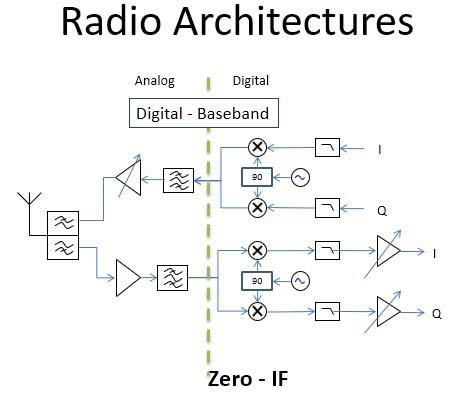
Class 2: ADC Receiver, CORDIC Rotator, Digital Down Converters, Numerically Controlled Oscillators
Class 3: Digital Control Loops; Output Power Control, Automatic Gain Control
Class 4: Digital Control Loops; Carrier and Timing Recovery, Sigma Delta Converters
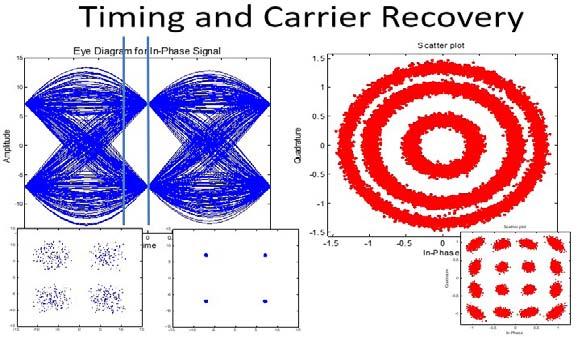
Class 5: RF Signal Impairments, Equalization and Compensation, Linear Feedback Shift Registers
Speaker’s Bio:
Dan Boschen has a MS in Communications and Signal Processing from Northeastern University, with over 25 years of experience in system and hardware design for radio transceivers and modems. He has held various positions at Signal Technologies, MITRE, Airvana and Hittite Microwave designing and developing transceiver hardware from baseband to antenna for wireless communications systems and has taught courses on DSP to international audiences for over 15 years. Dan is a contributor to Signal Processing Stack Exchange https:// dsp.stackexchange.com/, and is currently at Microchip (formerly Microsemi and Symmetricom) leading design efforts for advanced frequency and time solutions.
Decision (Run/Cancel) Date for this Course is Monday, September 18, 2023
IEEE Members $190
Non-members $210
For more background information, please view Dan’s Linked-In page at: http://www.linkedin.com/in/danboschen
https://ieeeboston.org/event/dspswradio/?instance_id=3429
The Reflector, October 2023 25
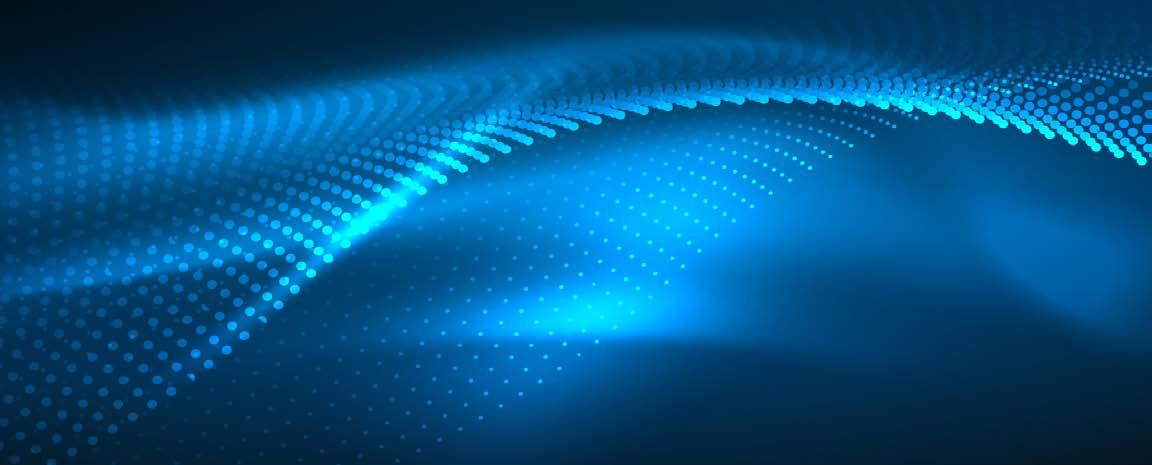
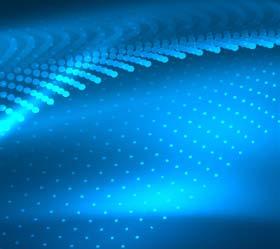
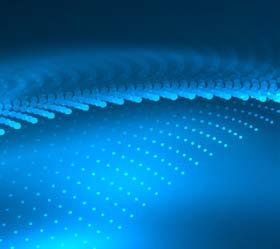

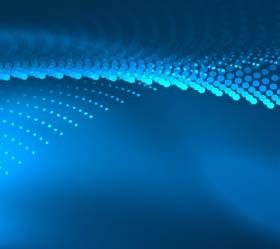



The Reflector, October 2023 26 Every Wednesday in October 2023 4 Focused Tracks With Free Seminars ONLINE Oct. 4 Signal Integrity/Power Integrity Oct. 11 5G/ Wi-Fi/ IoT Oct. 18 PCB/ Interconnect/ EMC-EMI Oct. 25 Radar/ Automotive/ SATCOM EDICONONLINE.COM Register Now! Platinum Sponsors: EARN IEEE CEU/PDH CREDITS! WIN A BOOK FROM ARTECH HOUSE!






























